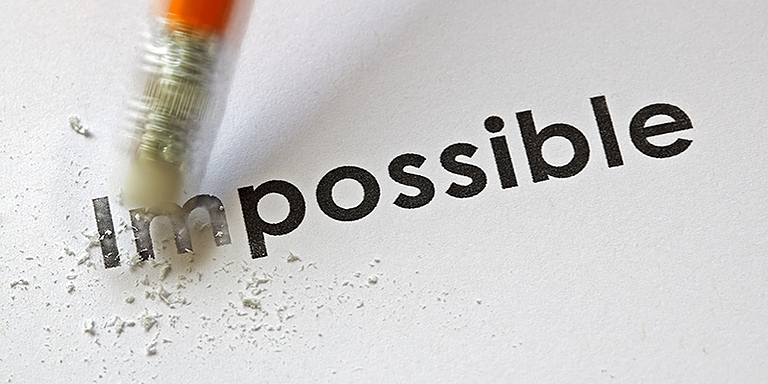Research has shown that resilience can be learned and developed by anyone! in the words of the American Psychological Association “Research has shown that resilience is ordinary, not extraordinary” and anyone can learn to become more resilient.
Resilience is the process of adapting well in the face of adversity, trauma, tragedy, threats or significant sources of stress (e.g. family and relationship problems, serious health problems, financial stressors). In short, resilience is the ability to ‘bounce back’ from difficult situations.
Yet resilience is not a quality that a person either has or doesn’t have. It’s not an ‘either-or.’ Instead, resilience lies on a continuum anchored by “not at all resilient” on one end of the spectrum, and ‘highly resilient’ on the other. Somewhere between these two extremes is a level of resilience that you might naturally have, and an opportunity to improve that level of resilience with the right knowledge and steps to take. Steps that involve changing your behaviours and changing your thinking. Psychologists sometimes call this your ‘capacity for resilience’—the larger your capacity for resilience, or the stronger, the more resilient you are to suffering from some of the adversities that life can present, and taking healthy action instead.
The American Psychological Association defines the following factors as the primary contributors to resilience,/
- having caring and supportive relationships within and outside the family
- making realistic plans and take steps to carry them out
- viewing yourself positively, having confidence in your own strengths and abilities
- skills in communication and problem-solving
- the ability to manage strong feelings and impulses (sometimes called “emotional health”)
Consider how you might build your capacity for resilience. Listed below are 10 building blocks.
Recognize your signs of stress.Mental breaks and relaxation help keep stress chemicals at bay, reducing the likelihood of feeling, or becoming, overwhelmed and reactive to events.
Build physical endurance and stamina.Taking care of yourself to keep your mind and body primed to deal with situations that require resilience. Make small changes to improve your health – better sleep hygiene, proper nutrition and hydration – and be accountable to someone other than yourself.
Calm you mind; Calm your body.Try out new strategies for relaxation—meditation, yoga, mindfulness, breathing exercises, visualizing calming scenes, playing with a pet, etc. Try visualizing what you want, rather than worrying about what you fear.
Identify and apply your strengths.Think about a time when you overcame a major challenge in your life:
- What did you learn about yourself?
- How might you apply this strength in the future?
- What helped you feel hopeful?
See the humour in life. Take steps to improve your positive emotions each day. Some ideas:
- Smile. Smiling stimulates the release of the brain chemical ‘serotonin’ which is known as the ‘love’ or ‘hug’ drug because it conjures feelings of happiness.
- Create a list of small things that bring you joy and happiness.
- List what you are grateful for or write a gratitude letter to a friend/colleague
- Acknowledge your accomplishments. Celebrate what you have achieved.
- Celebrate the accomplishments of others
Identify what matters to you most. Make a top five list of what matters to you most and concentrate your efforts in those areas (e.g. volunteering, family, working for yourself).
Nurture your relationships.Good relationships with close family members, friends, and co-workers is another building block of resilience.
Keep things in perspective.Even when facing very painful events, try to consider the stressful situation in a broader context and keep a long-term perspective. Avoid blowing the event out of proportion.
Nurture a positive view of yourself.An optimistic outlook enables you to expect that good things will happen in your life. Counter your doubts about yourself and your ability to handle difficult situations. Think of a challenging situation and try the following:
- Write down what you are thinking about when doubting your abilities to handle the situation
- Ask yourself “what is the worst that could happen” and “what is the best that could happen”
- What would you tell a friend facing a similar situation?
Take decisive actions.Act on adverse situations as much as you can. Take decisive actions, rather than detaching completely from problems and stresses and wishing they would just go away.
Resilience also involves maintaining flexibility and balance in your life as you deal with stressful circumstances and traumatic events. This happens in several ways, including:
- Letting yourself experience strong emotions and realizing when you may need to avoid experiencing them at times in order to continue functioning.
- Stepping forward and taking action to deal with your problems and meet the demands of daily living, also stepping back to rest and re-energize yourself.
- Spending time with loved ones to gain support and encouragement and nurturing yourself.
- Relying on others and relying on yourself
The Take Home Message
Developing resilience is a personal journey—what works to build the capacity for more resilience for other people may not work for you. However, each of these building blocks may help build your capacity for more resilience and your personal journey should try them all and see what works best. The key is to identify ways that are likely to work well for you as part of your own personal strategy for fostering resilience.
Learn More
Getting help when you need it is crucial in building your resilience. Beyond caring family members and friends, people often find it helpful to turn to:
- 10 Ways to Improve Your Resilience. VeryWellMind.3)https://www.verywellmind.com/ways-to-become-more-resilient-27950633)
- Learning to be resilient. Psychology Today.t)https://www.psychologytoday.com/ca/blog/media-spotlight/201305/learning-be-resilientt)
- The secrets of resilience: what one woman’s extraordinary trauma – and survival – can teach us. The Guardian.https://www.theguardian.com/science/2018/may/02/secrets-of-resilience-womans-extraordinary-trauma-survival-carmen-tarleton
- The Science of resilience. YouTube video. Center on the Developing Child at Harvard University.o)https://www.youtube.com/watch?v=1r8hj72bfGoo)













